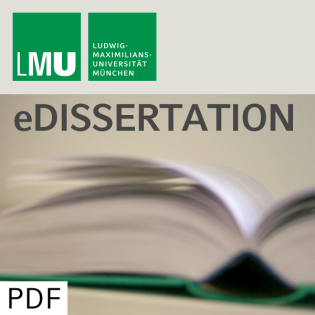
Time-dependent boundaries in numerical models
Beschreibung
vor 19 Jahren
This dissertation describes the development of a new numerical
framework enabling the study of principal atmospheric mechanisms as
well as aspects of numerical realisability that are neither easily
deduced from highly optimised operational numerical weather
prediction models nor idealised laboratory studies. The theoretical
development and efficient numerical implementation of a generalised
time-dependent coordinate transformation is demonstrated, creating
a unified numerical framework for investigating the influence of
upper and lower boundary conditions on atmospheric and oceanic
flows. In technical terms, the dissertation also enhances the
adaptivity of numerical models to boundary forcings determined by
data. The theoretical development is illustrated with numerical
simulations of idealised flows. An example of a practical
application is given which incorporates a long-wave-approximation
for a finite-amplitude free-surface upper boundary, directly
relevant to ocean models. Finally, the utility of the generalised
vertical coordinate in simulating stratified flows with intricate
geometric, time-dependent boundary forcings is demonstrated in the
direct numerical simulation of the laboratory analogue of the
quasi-biennial oscillation (QBO), the dominant variability in the
equatorial stratosphere. While the laboratory experiment exhibits
the principal mechanism of the QBO, and despite numerous studies of
the stratospheric phenomenon, a complete understanding of the QBO
eludes the efforts. On the basis of the numerical results presented
in this thesis, the original explanation of the laboratory
experiment is revised. The findings stress the utility of this
numerical framework and further elevate the importance of the
laboratory setup for its fundamental similarity to the atmosphere.
A detailed study of parametric and numerical sensitivities of the
oscillation is presented and implications on the successful
simulation and on the existing theory of equatorial oscillations
are discussed.
framework enabling the study of principal atmospheric mechanisms as
well as aspects of numerical realisability that are neither easily
deduced from highly optimised operational numerical weather
prediction models nor idealised laboratory studies. The theoretical
development and efficient numerical implementation of a generalised
time-dependent coordinate transformation is demonstrated, creating
a unified numerical framework for investigating the influence of
upper and lower boundary conditions on atmospheric and oceanic
flows. In technical terms, the dissertation also enhances the
adaptivity of numerical models to boundary forcings determined by
data. The theoretical development is illustrated with numerical
simulations of idealised flows. An example of a practical
application is given which incorporates a long-wave-approximation
for a finite-amplitude free-surface upper boundary, directly
relevant to ocean models. Finally, the utility of the generalised
vertical coordinate in simulating stratified flows with intricate
geometric, time-dependent boundary forcings is demonstrated in the
direct numerical simulation of the laboratory analogue of the
quasi-biennial oscillation (QBO), the dominant variability in the
equatorial stratosphere. While the laboratory experiment exhibits
the principal mechanism of the QBO, and despite numerous studies of
the stratospheric phenomenon, a complete understanding of the QBO
eludes the efforts. On the basis of the numerical results presented
in this thesis, the original explanation of the laboratory
experiment is revised. The findings stress the utility of this
numerical framework and further elevate the importance of the
laboratory setup for its fundamental similarity to the atmosphere.
A detailed study of parametric and numerical sensitivities of the
oscillation is presented and implications on the successful
simulation and on the existing theory of equatorial oscillations
are discussed.
Weitere Episoden

vor 16 Jahren
In Podcasts werben








Kommentare (0)